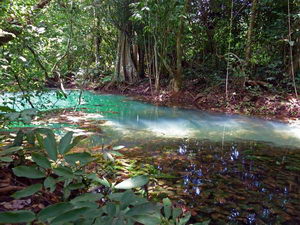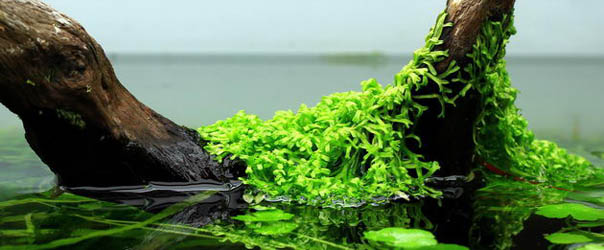Calcium (Ca)
Calcium is absorbed as bivalent cation Ca2+ by the plants. It is an essential phytonutrient that fulfills many functions in the organism of a plant. It is vital for cell division, for example, for the development of the cell walls and membranes, the absorption and conversion of nitrate and for the carbohydrate metabolism of the plant. Ca+ also acts as counterion for organic and inorganic anions in the cell vacuoles and as transmitter in the cell plasma. Moreover, calcium forms part of or regulates enzymes.

Calcium stored in plant tissue is no longer transportable within the plant, which makes a constant supply of this element crucial for terrestrial plants. This is less of a problem for aquatic plants, as they can absorb Ca2+ from the surrounding water through their leaves.
Natural waterbodies vary very much in their calcium concentrations, depending on the calcium content of the surrounding rocks and sediments. Typically it is around 15 mg/l, however, there are waters with a concentration of less than 1 mg/l, and in areas with rocks (predominantely limestone) and soils rich in calcium, the concentration may reach 30 and in extreme cases even 100 mg/l. The Ca2+ concentration, together with magnesium ions (Mg2+, also a macronutrient) and other alkaline earth metals, is responsible for the total hardness of the water.

Different plant species require different amounts of calcium; this has mainly been researched on terrestrial plants and aquatic plants with emerged growth. A calcium deficiency in terrestrial plants can have various symptoms, which first show in the formative tissue (sprout and root tips), resulting in tissue damage, amongst others. However, the calcium requirements, uptake and deficiency symptoms of submerged plants are still quite unclear. Problems with calcium deficits can only be expected in very soft water. However, very soft water is a prerequisite for some very demanding aquatic plants, and as far as we know, there are no reported cases of stunted growth that can unequivocally be attributed to a lack of calcium. Thus we can safely assume that the amount of Ca2+ - like sulfates - is practically always sufficient in an aquarium.
Folgende Aqua Rebell Dünger führen Calcium zu
